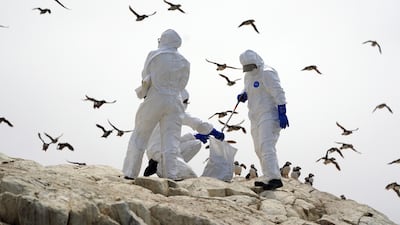The UK is facing its biggest bird flu outbreak, with millions of birds being culled and millions more at risk, government figures show.
The raw figures might appear low — 120 cases in England, 11 in Scotland, seven in Wales and six in Northern Ireland — but the latest wave is bigger than any previous outbreak and means that 2.8 million birds have been culled this year.
There are similar concerns about avian flu in the Netherlands, where 3.7 million chickens, ducks and turkeys have been culled. In France, 16 million farm birds have been culled.
The UK government said the 2.8 million birds killed are a small proportion of overall poultry production, with 20 million being slaughtered each week.
Last week, culls were ordered in the southern Welsh town of Milford Haven and Torpoint in south-west England. Protection and surveillance zones were also put in place.
A regional avian influenza prevention zone (AIPZ) was declared for Cornwall, Devon, the Isles of Scilly and parts of Somerset. The move includes a legal requirement for all bird keepers to introduce enhanced biosecurity measures to help protect their flocks.
The highly pathogenic avian influenza was first reported in farmed poultry in China but has spread around the world and is now hitting populations in Europe and North America.
“It has affected our seabirds on an unprecedented scale in what is undoubtedly the worst outbreak of the virus we’ve ever seen. We estimate the numbers affected are in the hundreds of thousands,” said Martin Fowlie, spokesman for the Royal Society for the Protection of Birds.
Wild gannets, terns and puffins are among the many species affected.
“The poultry sector has experienced a very difficult year in regard to the threat of avian influenza,” said James Mottershead, from the National Farmers Union's poultry board.
The Dutch government has looked at banning poultry farms from areas near water, but has not yet moved forward with the idea.
“The virus is brought into the Netherlands by wild migrating birds from Siberia that stay for the winter, and before we saw that when they migrated back in April, the virus was also gone,” said bird flu expert Dr Nancy Beerens.
“But now all kinds of bird species have become infected and that means that the virus stays.”


